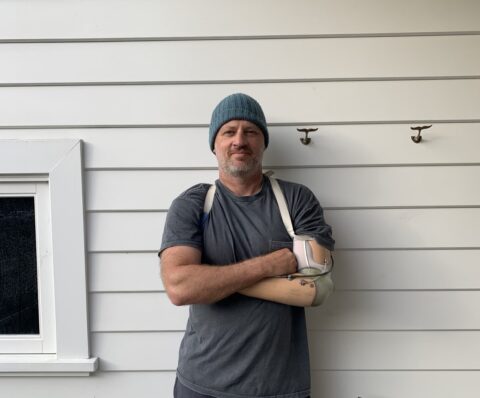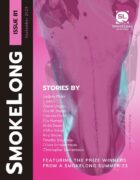One of your essay’s most compelling features is its narrative voice, which fully achieves that defiant tone of a teenager rebelling against both familial and societal expectations. Its significance greatly increases in the final paragraph, however, when it’s revealed the depicted events “happened a long time ago,” with the final sentence hinting at what has transpired in the meantime that has only deepened the narrator’s resolve. What was the desired effect of adding that extra bit of context at the end?
As a young person, I was very unaware; the events of my life flashed by, and I was only able to discern which ones were formative much later on. In real time, I lived on the meniscus of life and barely acknowledged, let alone analyzed, how I felt. Understanding the nuances and emotional content of those situations came later in life. I think that is what’s happening here: The narrator, looking back, is able to clarify and articulate what his youthful self felt deeply but couldn’t grasp. The younger character is rebellious and invincible, and as a result he loves in a headlong way, which is something the narrator is no longer capable of.
The point of view is also worth noting, as it modulates between first-person central and first-person plural, hinting at a complicated relationship between the two perspectives. Do you feel the narrator’s identity changes according to which point of view is being used?
Yeah. As a youth, the narrator is really not an individual so much as he is part of a “we.” Maybe it’s a little codependent! Maybe it’s a little suffocating to lose your identity in that kind of a romance. The youthful character doesn’t recognize this, but the first-person narrator at the end of the story has set clearer boundaries for himself, maybe put up some defenses too; he has recognized the value in that.
At the same time, the other main character, the presumed second half of the “we,” is never directly identified or described, despite their obvious importance to the narrator. What was your motivation for maintaining this level of anonymity?
I wanted the romantic relationship to feel universal, like the lover might be someone that a reader would recognize from their own life. I hope that lots of people have experienced a first love like that so they can kinda fill in the gap.
Similarly, what was your reasoning for not documenting the presumed demise of this relationship, for not depicting the “heartbreak” referenced in the penultimate paragraph?
I didn’t think I could do it justice in a short piece, and I didn’t know that it was necessary to tell this story. I think the demise might be a story in itself and the reader would need to know more about both characters. By not documenting the demise, I was leaning on the idea that heartbreak doesn’t need to be articulated if a reader has their own experience with that pain; they already understand how it can change a person. I thought the pain and the change were more important than the reason for the breakup.
Finally, on a lighter note: Did you ever develop an appreciation for “Free Fallin’” as a song?
LOL. Not exactly. It’s a catchy tune and I can appreciate the craft, but it’s not on my high-rotation playlists. When I do hear it on the radio, it feels heavy with meaning though. It takes me back to who I once was in the place where I grew up.



 The core workshop of SmokeLong Fitness is all in writing, so you can take part from anywhere at anytime. We are excited about creating a supportive, consistent and structured environment for flash writers to work on their craft in a community. We are thrilled and proud to say that our workshop participants have won, placed, or been listed in every major flash competition. Community works.
The core workshop of SmokeLong Fitness is all in writing, so you can take part from anywhere at anytime. We are excited about creating a supportive, consistent and structured environment for flash writers to work on their craft in a community. We are thrilled and proud to say that our workshop participants have won, placed, or been listed in every major flash competition. Community works.